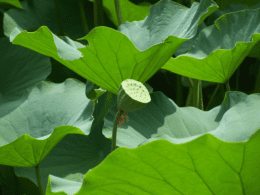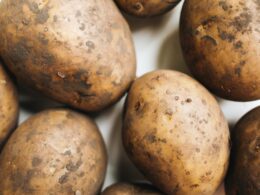Do you have a garden that you love to tend to? Are you looking for ways to make your soil even richer and more nutrient-dense? Composting is a wonderful way to achieve this goal, but have you ever wondered how long your compost will last?
In this article, we will explore everything you need to know about compost shelf-life and storage methods. We will also discuss the benefits of compost and how you can recycle old compost to give your garden an extra boost.
Whether you’re a seasoned composter or just starting out, understanding how long your compost will last is crucial for maintaining a healthy and vibrant garden. So, let’s dive in and explore the world of compost together!
Quick Takeaways
- Compost should last for at least a year and can be stored properly to extend its life.
- Moisture content and airflow are crucial for storing compost in bags.
- Compost is ideal for improving poor soils and helps with better drainage, moisture retention, preventing soil compaction, and oxygen penetration.
- Old compost can be recycled by mixing it with a fresh batch or using it as mulch to protect plant roots and reduce weed growth.
Compost Shelf-Life
You can extend the shelf-life of your compost by storing it properly. Depending on whether you store it in bags or containers, it can last anywhere from 12 to 24 months.
To ensure your compost lasts as long as possible, it’s important to maintain the right moisture content and airflow. If you’re storing compost in bags, make sure they’re well-sealed and have enough airflow to prevent moisture buildup.
Containers with lids are great for storing compost, as they help keep moisture levels stable and save space. By taking these simple steps, you can ensure your compost lasts for a year or more, providing your soil with valuable nutrients and improving its overall health.
Can Tree Branches Be Used in Compost and How Long Does It Take for Them to Decompose?
Can tree branches be used in compost? Yes, tree branches can be used in composting. However, it is important to note that they take a longer time to decompose compared to other compost materials. The tree branch decomposition timeline can vary depending on factors such as the size of the branches and the composting conditions. On average, it may take several months to a few years for tree branches to fully decompose in a compost pile.
How Can Adding Compost to Seedlings Help with Optimal Growth?
Fertilizing seedlings for optimal growth involves adding compost, which offers numerous benefits. Compost enhances soil fertility, providing essential nutrients that seedlings require for healthy development. It improves soil structure, promoting root growth and water retention. Additionally, compost helps suppress diseases and pests, allowing for better overall plant growth.
Storage Methods
Properly storing your compost can extend its shelf-life and nutrient benefits for up to two years, depending on the storage method and conditions. Moisture content and airflow are crucial factors to consider when storing compost in bags, while bins or containers with lids are great options for saving space.
To help you store your compost properly, here’s a table that summarizes the recommended storage times and methods for different types of compost:
| Type of Compost | Storage Method | Recommended Shelf-Life |
|---|---|---|
| Compost in Piles | Covered with Tarp | 4-12 months |
| Compost in Bags | Moisture and Airflow Controlled | 12-24 months |
| Compost in Bins or Containers | With Lids | 12-18 months |
By following these storage recommendations, you can ensure that your compost remains fresh and nutrient-rich for longer periods. Remember, compost is an excellent way to improve soil quality and promote healthy plant growth, so taking the time to properly store it is well worth the effort!
Recycling Old Compost
To recycle old compost, you have two options. The first option is to mix it with a fresh batch of compost to create more volume. This is a great option if you have limited space and want to maximize the amount of compost you have. By mixing the old and new compost together, you’ll also be adding more beneficial microbes and nutrients to the new batch.
The second option is to use the old compost as mulch. This is a great way to protect your plant roots and reduce weed growth. Simply spread a layer of the old compost on top of the soil around your plants. The compost will slowly break down over time, adding nutrients to the soil and helping to retain moisture.
This is a great way to get the most out of your old compost and keep your plants healthy and happy.
Frequently Asked Questions
What are some common mistakes people make when storing compost?
When storing compost, common mistakes include not maintaining proper moisture levels, not providing adequate airflow, and using containers without lids. These errors can lead to bad-smelling, unusable compost. Ensure proper storage to avoid these issues.
Can compost go bad if it is stored for too long?
Yes, compost can go bad if stored for too long. Signs include a rotten smell, bone-dry or soggy texture, and no continual ingredient breakdown. Proper storage, such as in bags or containers with adequate moisture and airflow, can extend its life.
Is it better to store compost in bags or containers?
If you want to store compost for a longer time, it’s better to use bags or containers. Containers with lids are great for saving space. Remember to maintain moisture and airflow for bag storage.
How often should compost be turned or mixed while in storage?
To keep your compost healthy, turn or mix it every few weeks while in storage. This ensures oxygen reaches all parts of the pile, allowing microbes to break down the ingredients and produce nutrient-rich compost for your plants.
Can compost be stored indoors or does it need to be kept outside?
Yes, compost can be stored indoors as long as it has proper ventilation and is not exposed to direct sunlight. It’s important to maintain the right moisture levels and avoid any odors.
Conclusion
Congratulations! You’ve now learned all about the shelf-life and storage of compost. By following the proper storage methods, you can expect your compost to last anywhere from six months to two years. Remember to keep it in a cool, dry place and turn it regularly to prevent bad odors and mold.
In addition to creating nutrient-rich soil for your garden, composting has many other benefits. It reduces waste, saves money, and improves soil structure.
Compost tea is also a great way to nourish your plants and recycle old compost. So, keep composting and enjoy all the benefits it has to offer!








